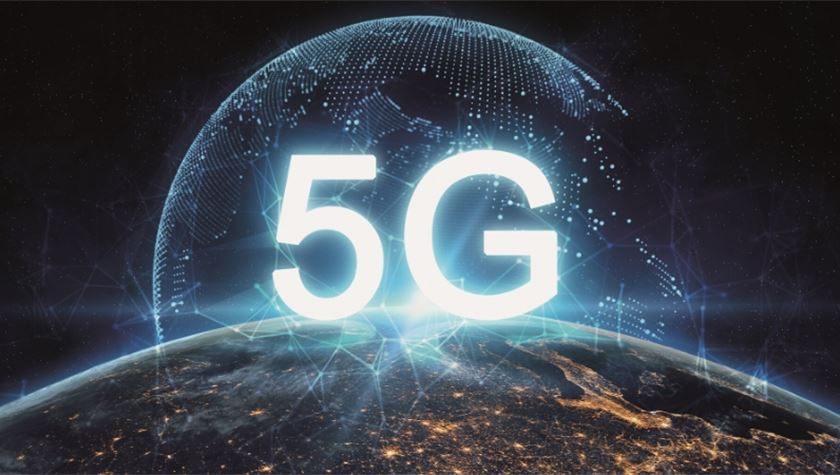Unlocking the Future with Blazing Speeds and Limitless Possibilities
Introduction
The world is on the brink of a technological revolution, and its name is 5G. This fifth-generation wireless technology promises to be more than just an upgrade; it’s a seismic shift that will redefine how we connect, communicate, and innovate. As we delve into the intricacies of 5G, let’s explore how it intersects with the dynamic field of Computer Science and why it’s poised to revolutionize our lives.

Table of Contents
What Is 5G?
Before we dive into the specifics, let’s demystify 5G. Simply put, 5G stands for fifth generation-the latest standard for cellular networks. While 4G brought us high-speed mobile internet, 5G takes it to a whole new level. Imagine your current network on steroids: faster, more efficient, and capable of handling an unprecedented number of devices.
The Power of 5G
1. Lightning-Fast Speeds
At the heart of 5G lies its lightning-fast data speeds. We’re talking about multi-gigabit-per-second downloads-fast enough to stream 4K movies in the blink of an eye. For computer scientists, this means real-time data processing, seamless cloud computing, and rapid software updates. Imagine a world where lag is a distant memory, and latency is virtually nonexistent.
2. Low Latency Communications
Latency—the time it takes for data to travel from sender to receiver-is critical in fields like autonomous vehicles, telemedicine, and gaming. With 5G, latency drops to milliseconds, enabling surgeons to perform remote surgeries, gamers to compete globally without delay, and self-driving cars to make split-second decisions. Computer scientists are at the forefront of leveraging this low-latency revolution.
3. Massive Device Connectivity
Remember the Internet of Things (IoT)? 5G supercharges it. Picture a smart city where traffic lights communicate with cars, sensors monitor air quality, and your fridge orders groceries-all seamlessly. Computer scientists are developing algorithms to manage the influx of connected devices, ensuring efficient data exchange and minimal congestion.
4. Edge Computing
5G brings computation closer to the action-literally. Edge computing processes data at the network’s edge, reducing latency and enhancing real-time decision-making. Think of it as having a mini data center in your neighborhood. Computer scientists are designing edge applications that optimize everything from traffic management to augmented reality experiences.
Applications in Computer Science
1. Augmented Reality (AR) and Virtual Reality (VR)
5G unlocks AR and VR’s true potential. Imagine surgeons collaborating across continents in real time, architects visualizing buildings before construction, and gamers immersed in hyper-realistic worlds. Computer scientists are developing AR/VR applications that rely on 5G’s speed and low latency.
2. Smart Cities and Sustainability
Computer scientists play a pivotal role in creating smart cities powered by 5G. From energy-efficient transportation systems to waste management, 5G enables data-driven solutions. Imagine AI-driven traffic optimization, smart grids, and predictive maintenance-all driven by computer science innovations.
3. Cybersecurity
As our digital lives expand, so do security threats. 5G’s secure communication channels are a game-changer for cybersecurity. Computer scientists are devising robust encryption methods, intrusion detection systems, and secure IoT protocols to safeguard our interconnected world.
Conclusion
5G isn’t just about faster downloads; it’s about reshaping our world. As computer scientists harness its power, we’re witnessing a convergence of technology, connectivity, and innovation. Brace yourself-the 5G revolution is here, and it’s rewriting the rules of the game. For more information, so please visit this link.
Remember, the future is 5G, and computer science is its guiding star.
Sources:
- “How 5G Technology is Going to Change Our World” by Trevor English
- “How to accelerate the world into the 5G era” by MIT Technology Review
- “The dawn of the 5G era: a game changer for the telecom industry” by KPMG
- “What is 5G technology?” by McKinsey
- “How 5G Will Change The World – And Why It’s Even More Important Now” by Forbes
Frequently Asked Questions (FAQs): Exploring the Impact of 5G Technology
What exactly is 5G and how does it differ from previous generations?
5G, or fifth-generation wireless technology, represents the latest standard for cellular networks. Unlike its predecessors, 5G boasts significantly faster data speeds, lower latency, and the capacity to connect an unprecedented number of devices. It’s essentially a quantum leap forward in mobile connectivity.
How fast is 5G, and what implications does this speed have for everyday users?
5G offers blazing-fast data speeds, with multi-gigabit-per-second downloads. This means you can download and stream content at lightning speed, even in ultra-high definition. Imagine downloading a full-length movie in seconds or enjoying lag-free video calls-5G makes all this and more possible.
What role does low latency play in the 5G landscape, and how does it impact various industries?
Low latency, or the minimal delay in data transmission, is a game-changer for industries like autonomous vehicles, telemedicine, and gaming. With 5G’s reduced latency to milliseconds, tasks that require real-time interaction-such as remote surgeries, competitive gaming, and self-driving cars-become not just feasible but seamless.
How does 5G facilitate the Internet of Things (IoT), and what opportunities does it present for smart cities?
5G supercharges the IoT by enabling massive device connectivity and efficient data exchange. This opens up a world of possibilities for smart cities, where interconnected devices-from traffic lights to home appliances-communicate seamlessly to enhance efficiency, sustainability, and quality of life.
In what ways does 5G intersect with computer science, and what innovations can we expect?
Computer scientists are at the forefront of leveraging 5G’s capabilities to drive innovation across various fields. From augmented reality and virtual reality applications to smart city solutions and cybersecurity enhancements, 5G presents a wealth of opportunities for computer science-driven advancements.
How does 5G contribute to cybersecurity, and what measures are being taken to ensure data security in the 5G era?
With the proliferation of interconnected devices and data exchange facilitated by 5G, cybersecurity becomes more critical than ever. Computer scientists are actively developing robust encryption methods, intrusion detection systems, and secure IoT protocols to safeguard against evolving threats in the interconnected 5G landscape.
